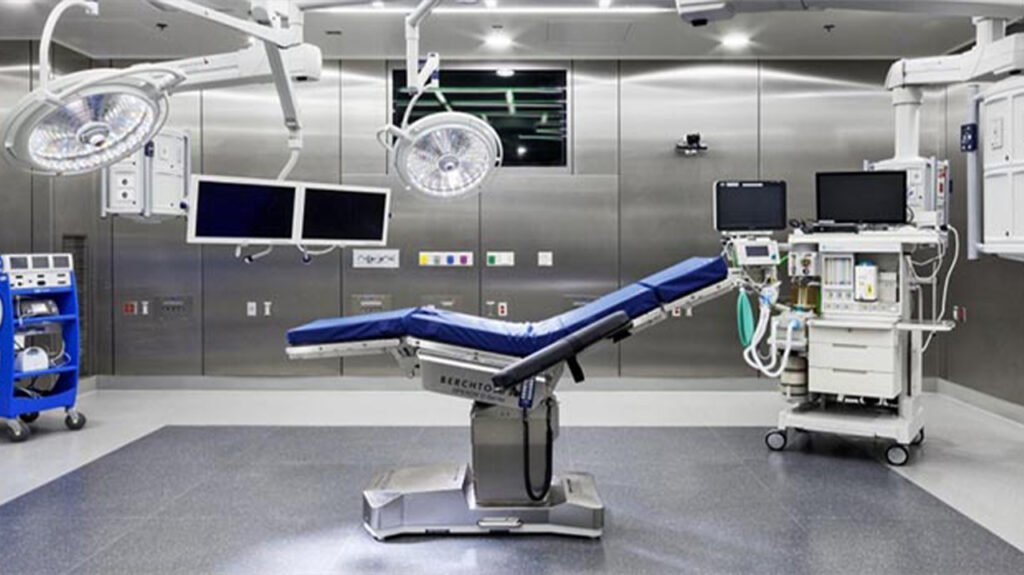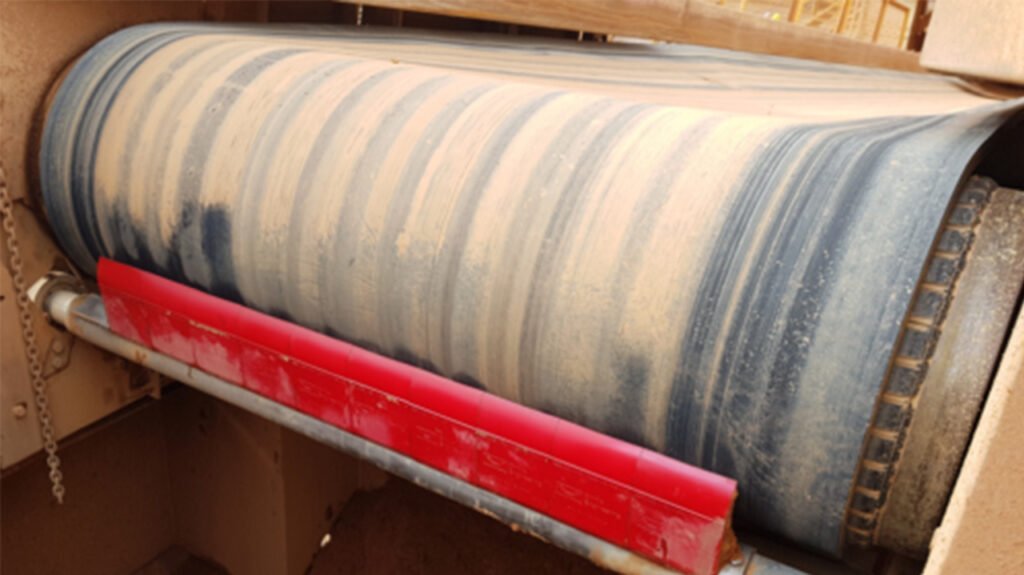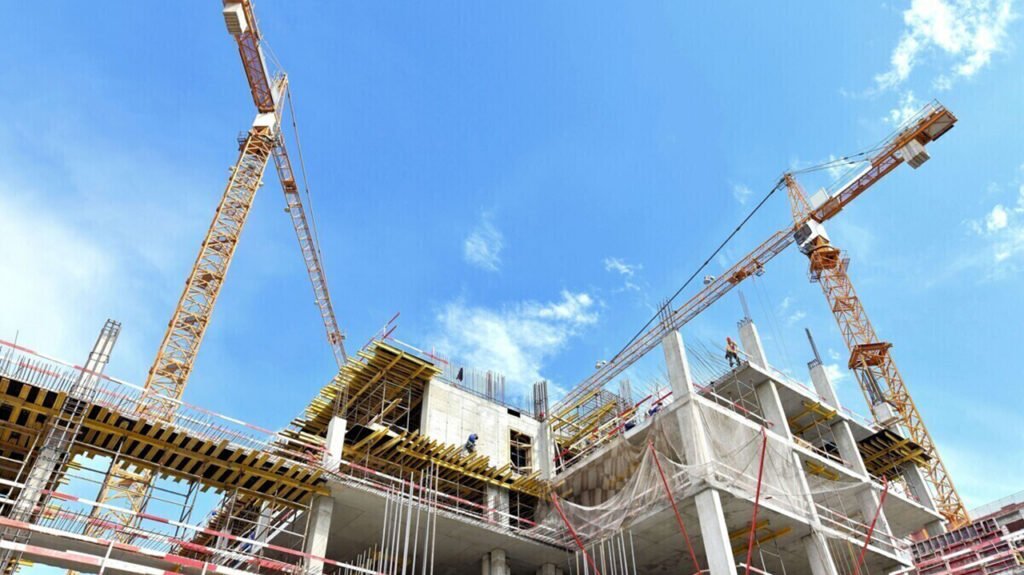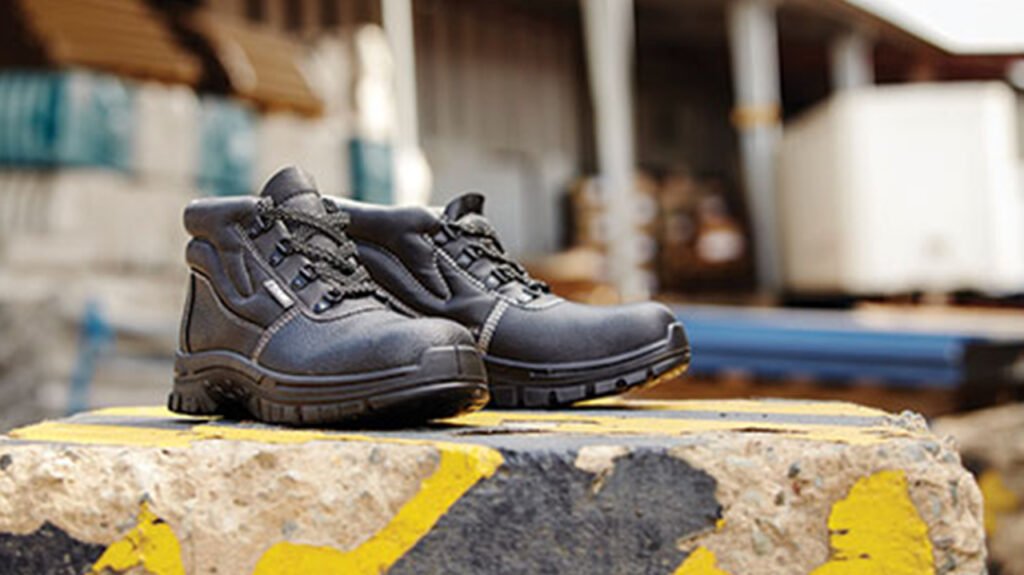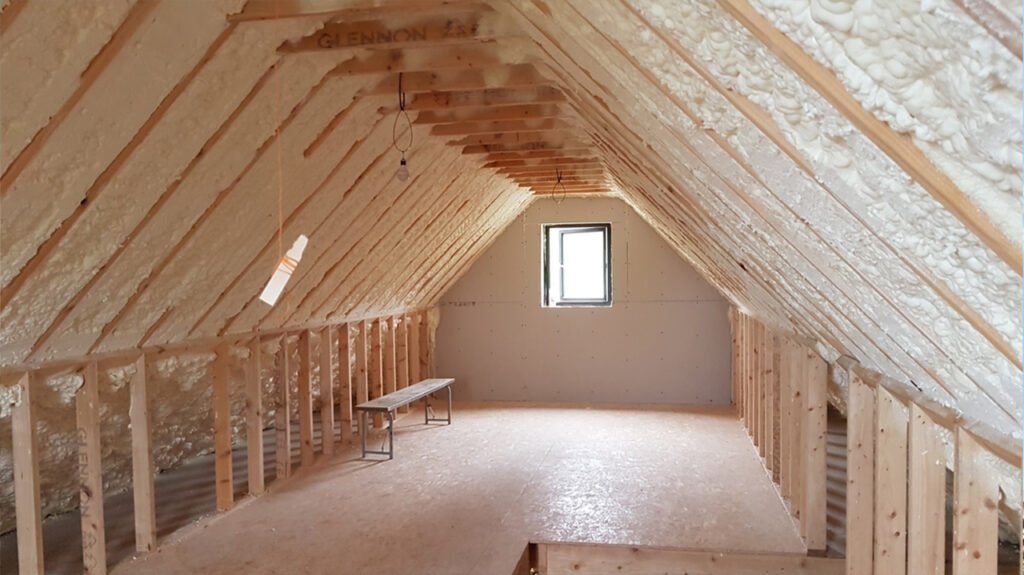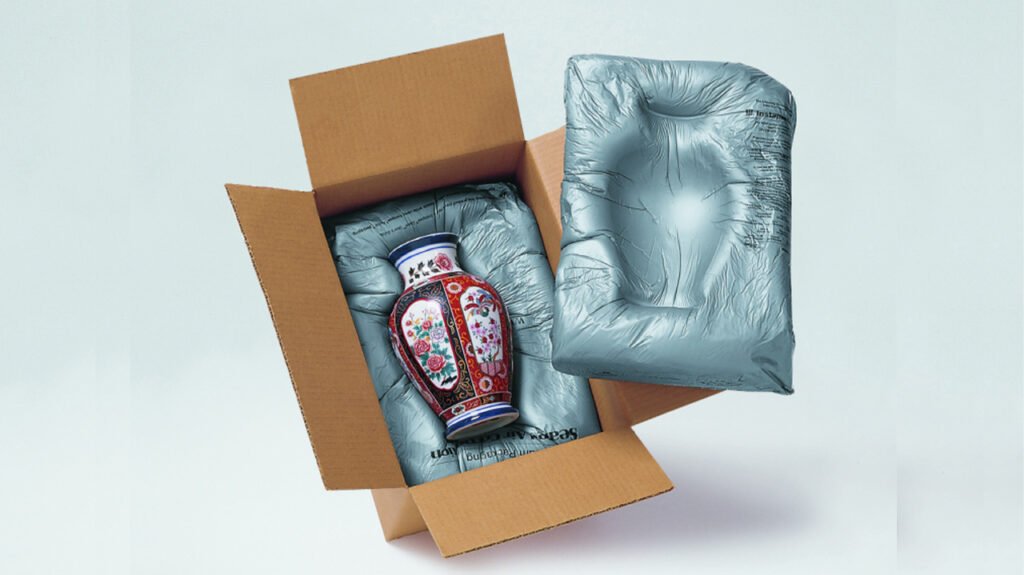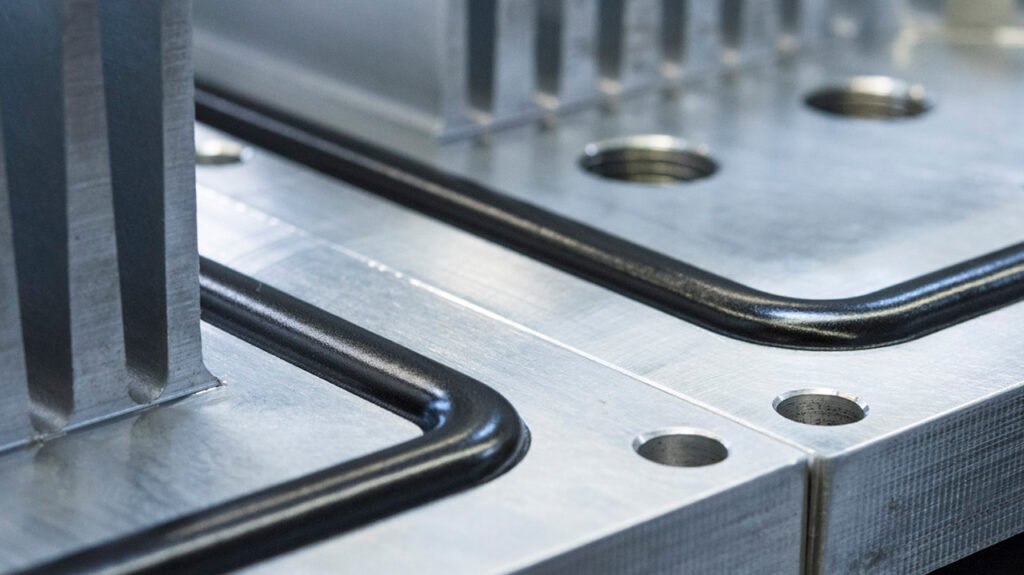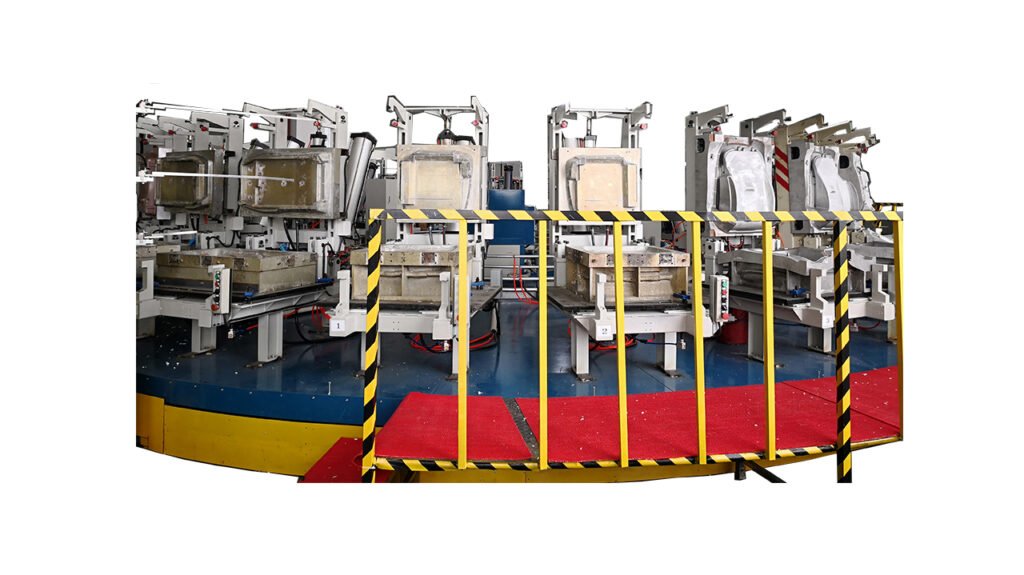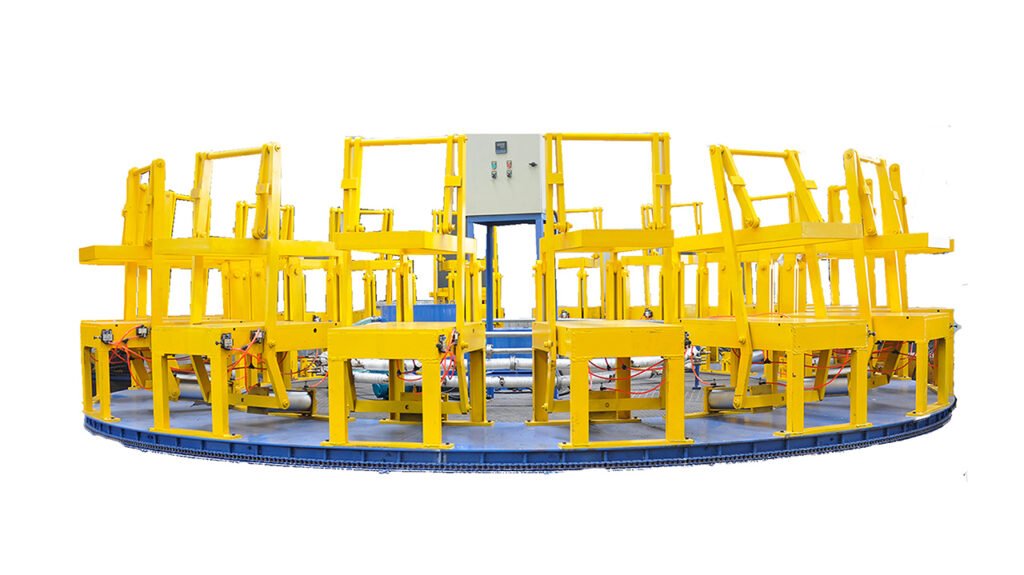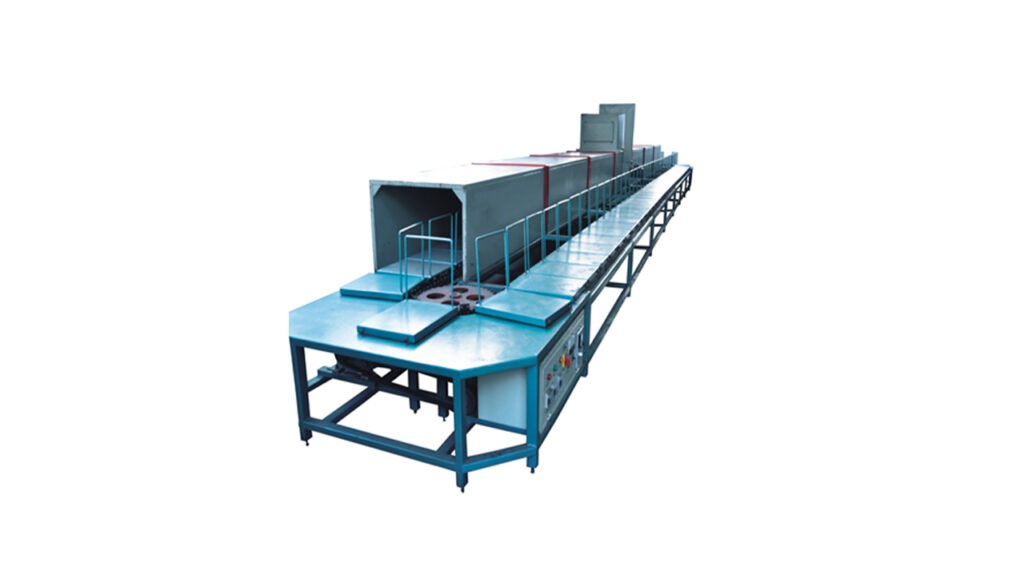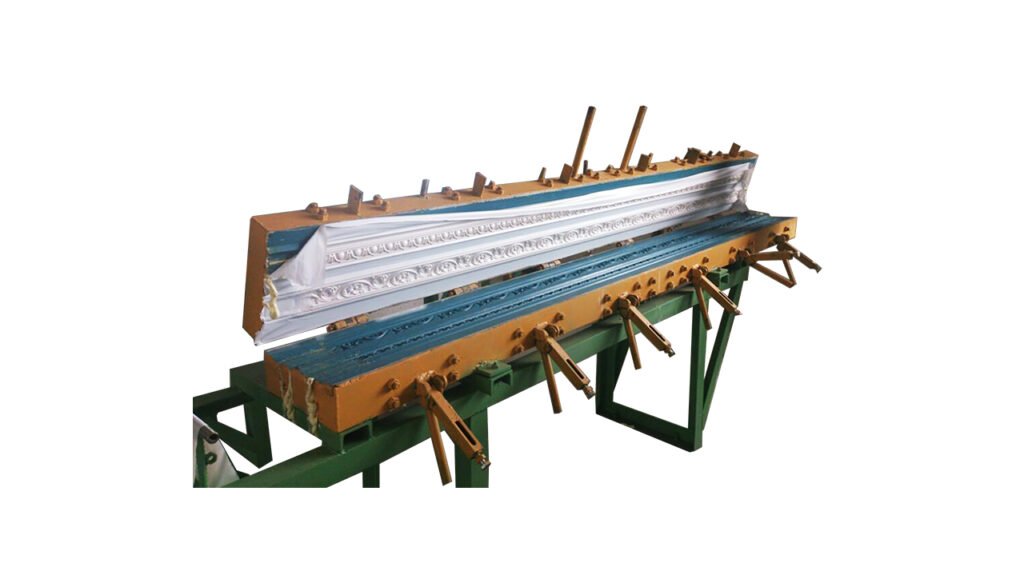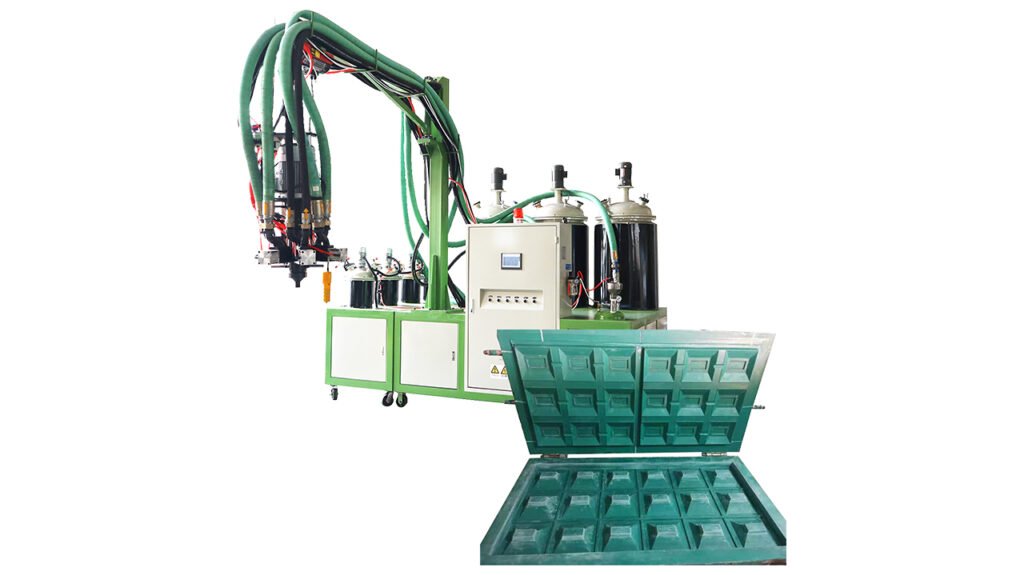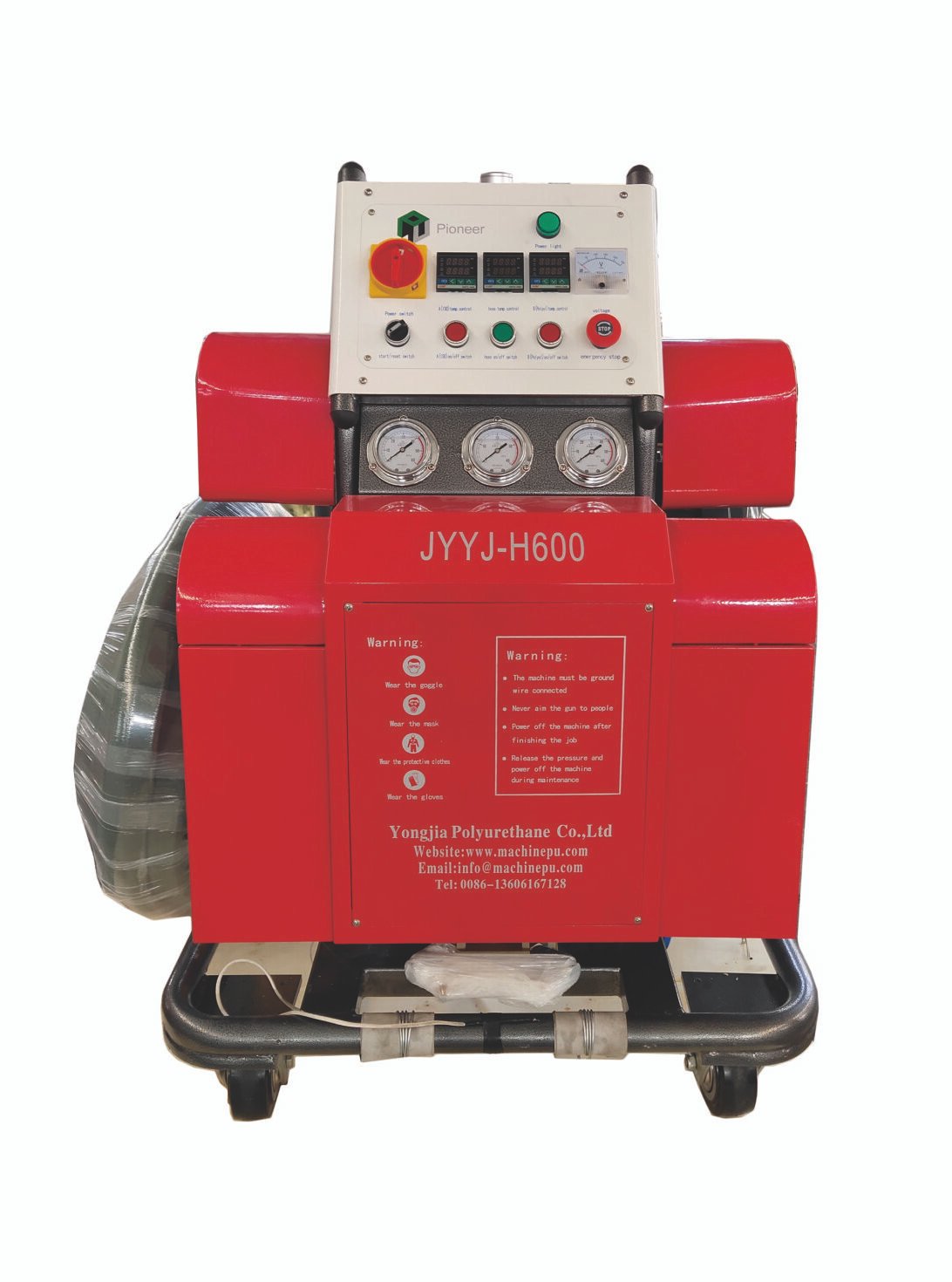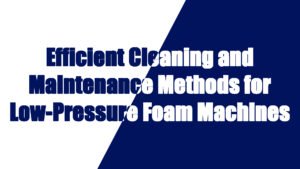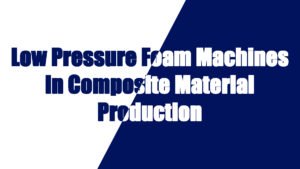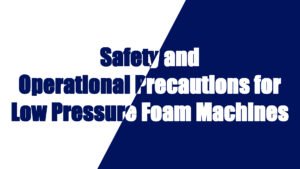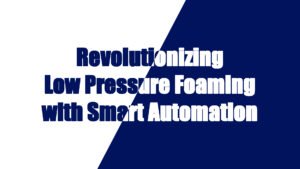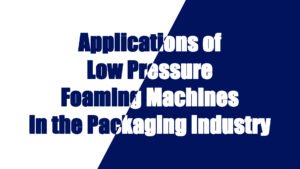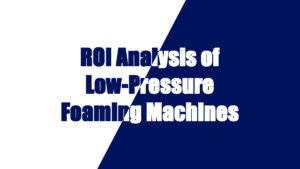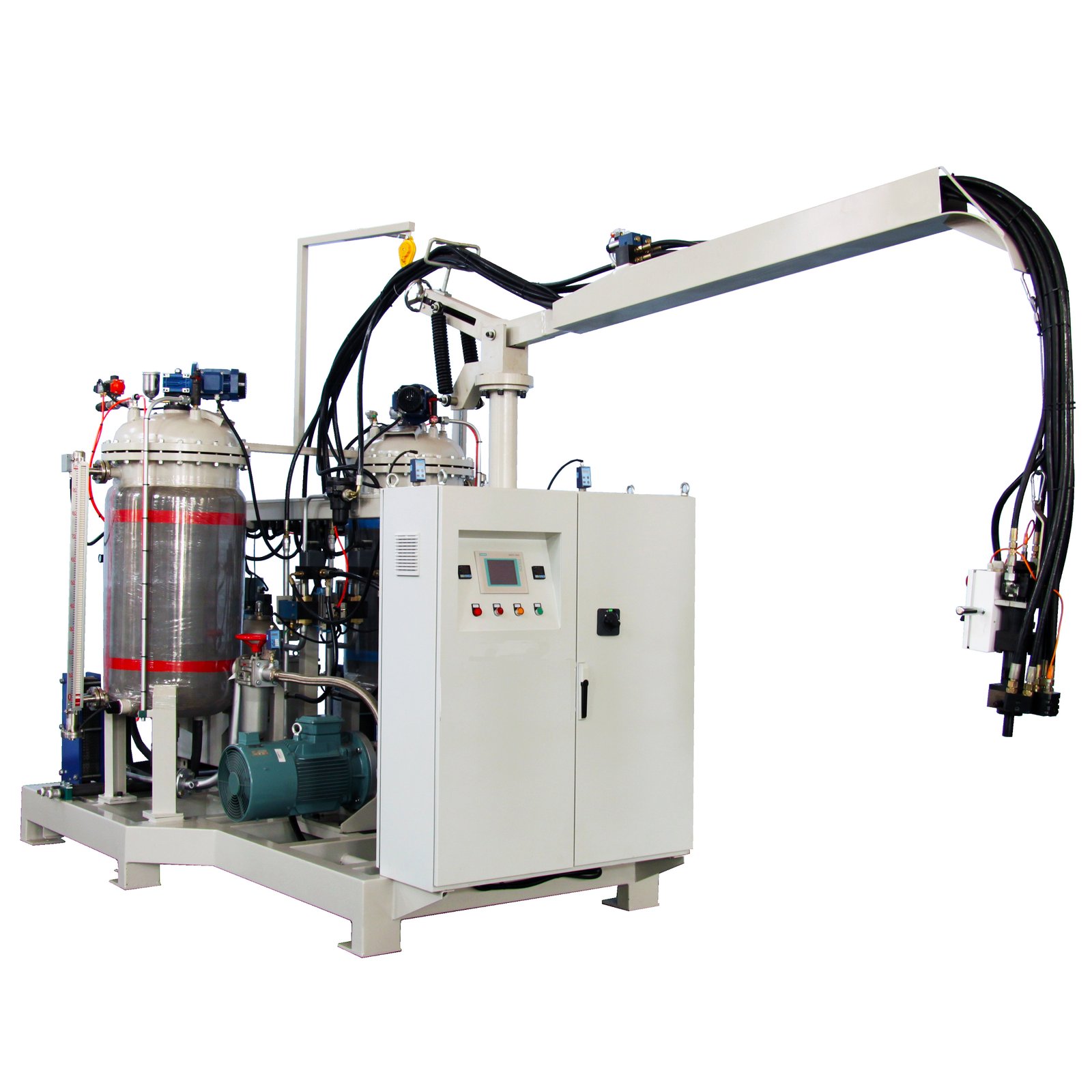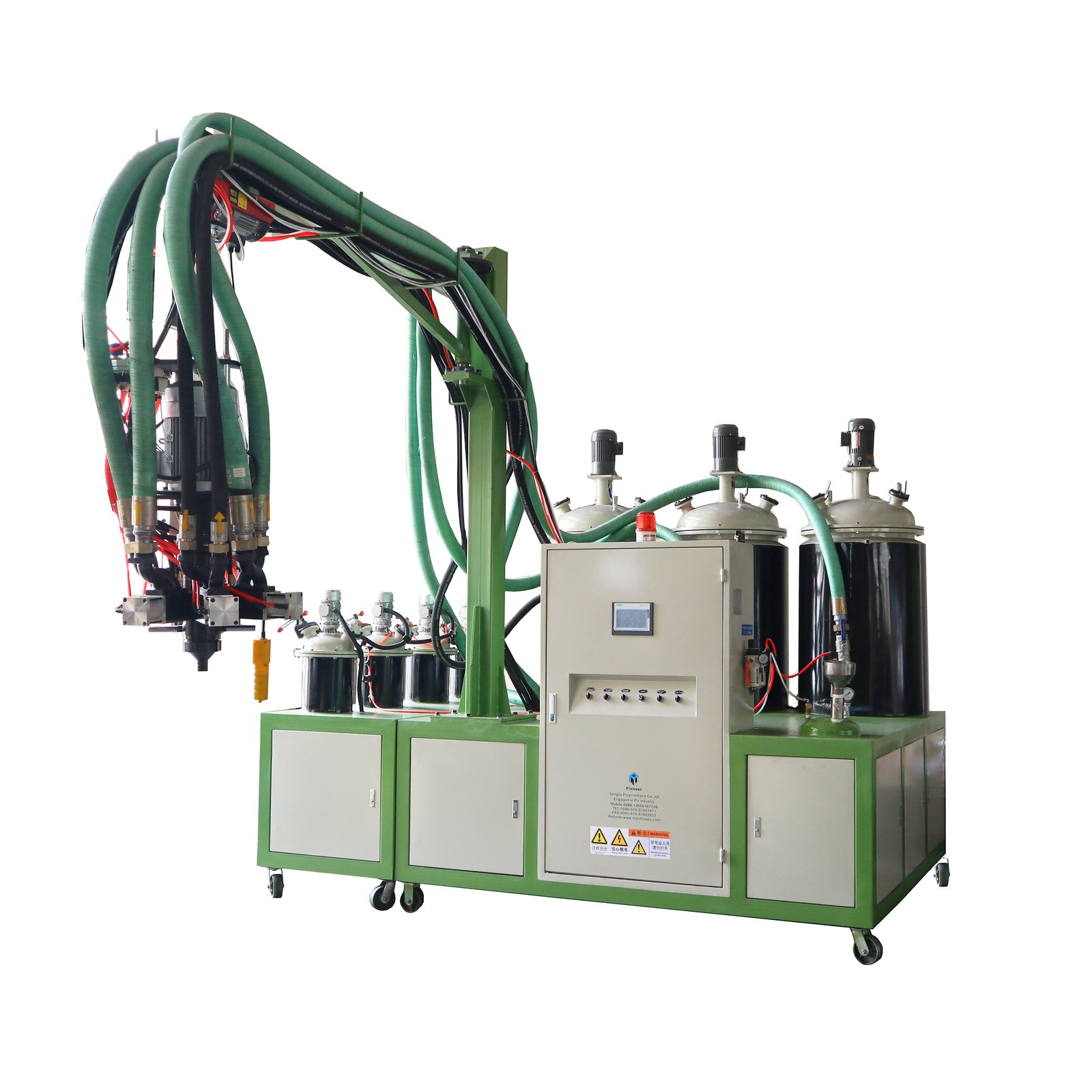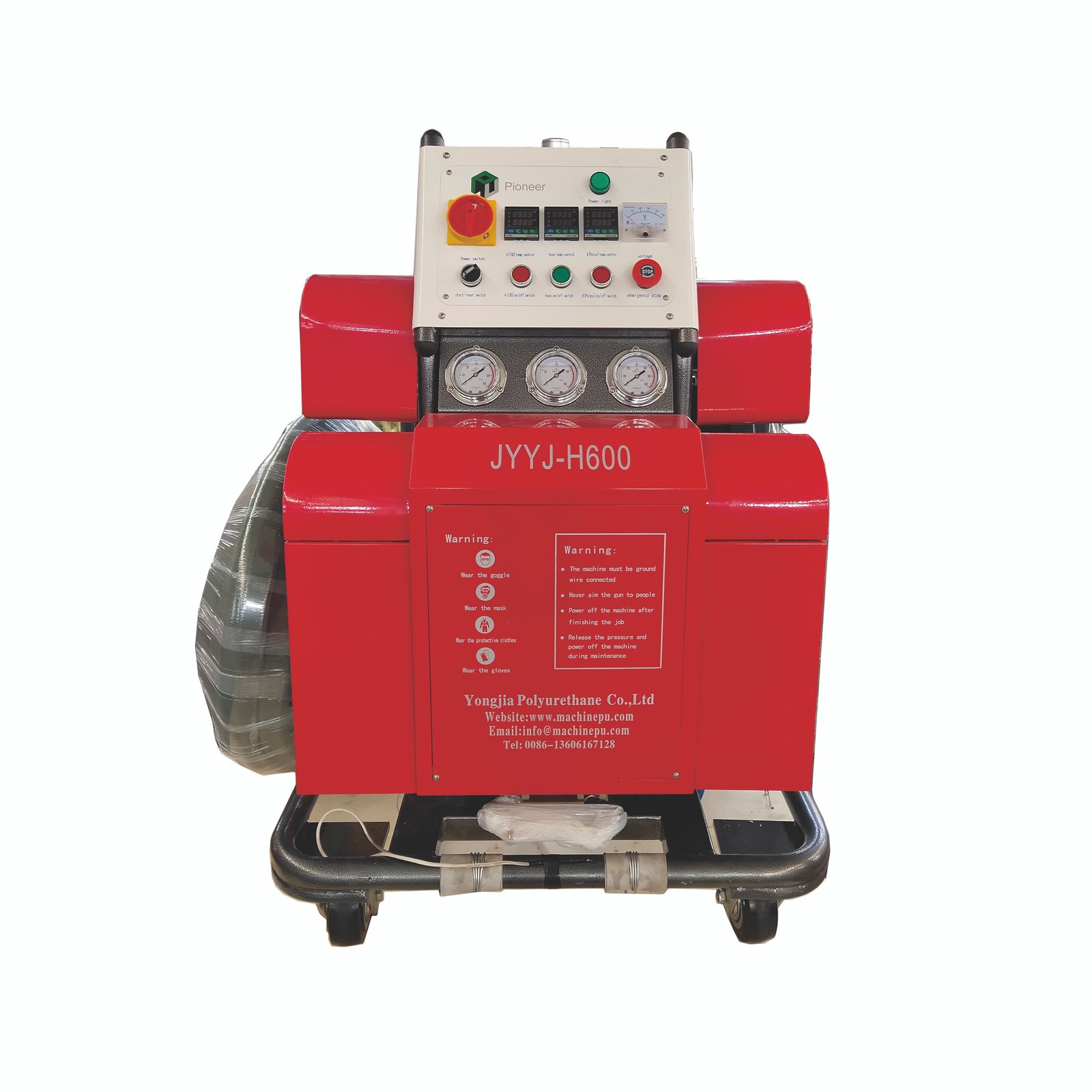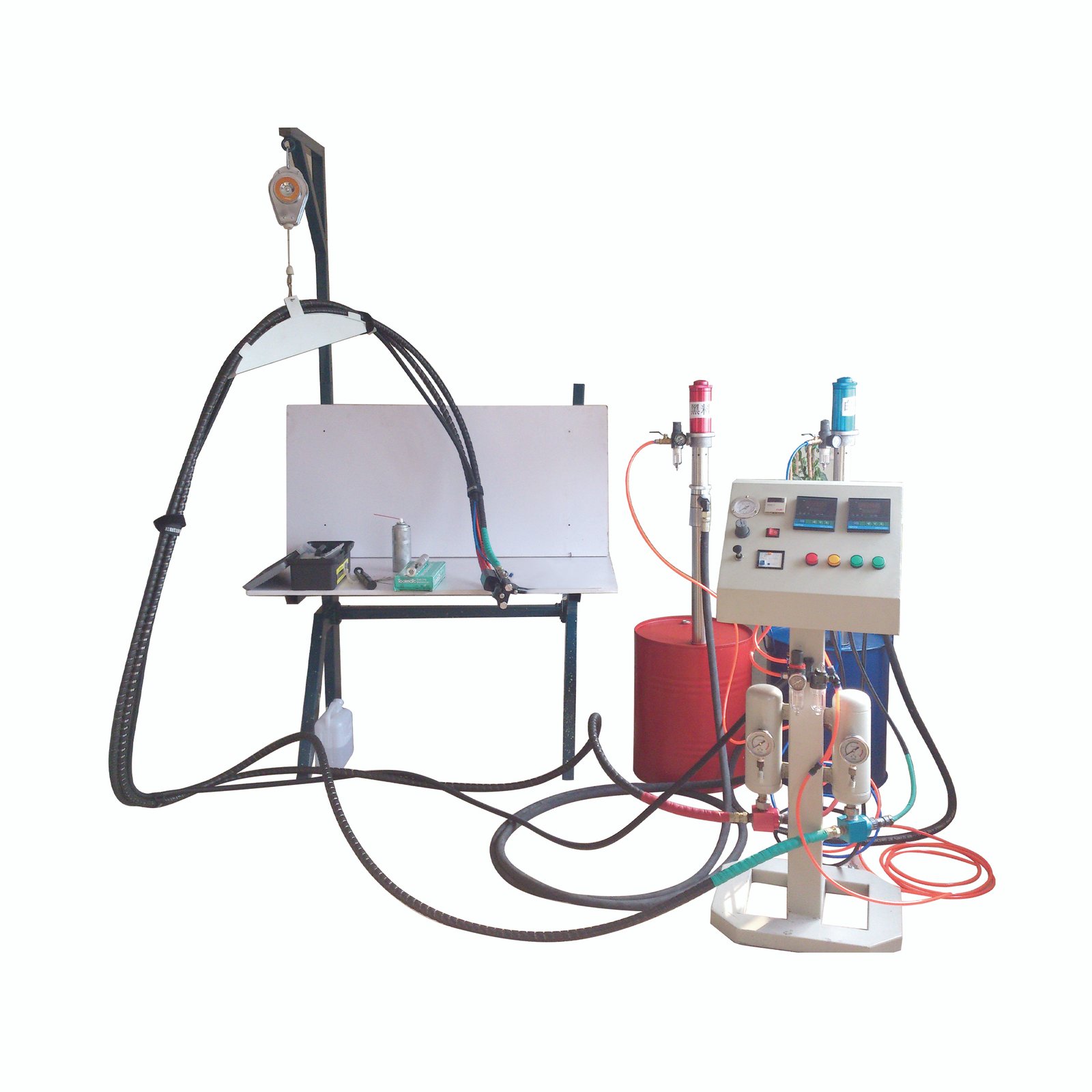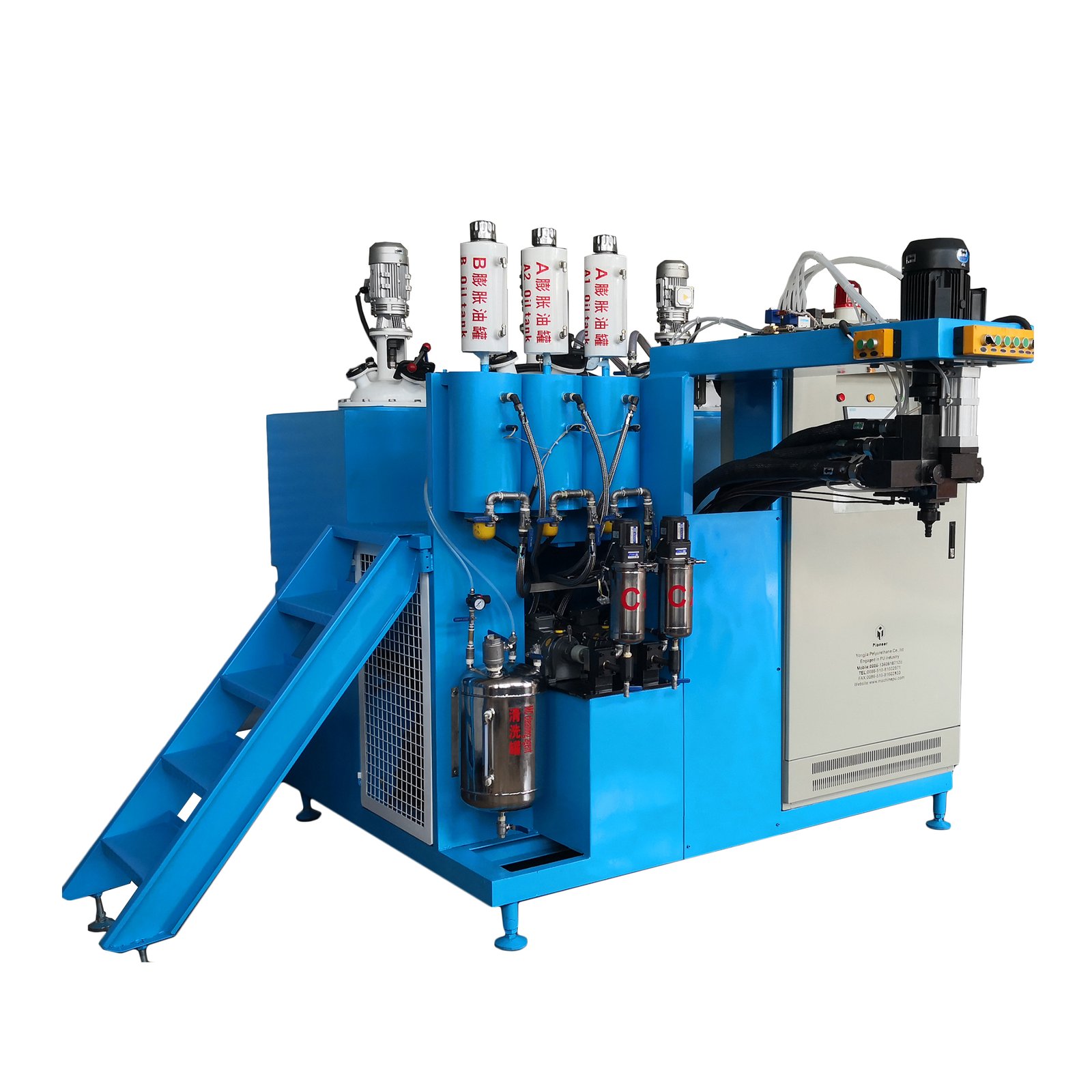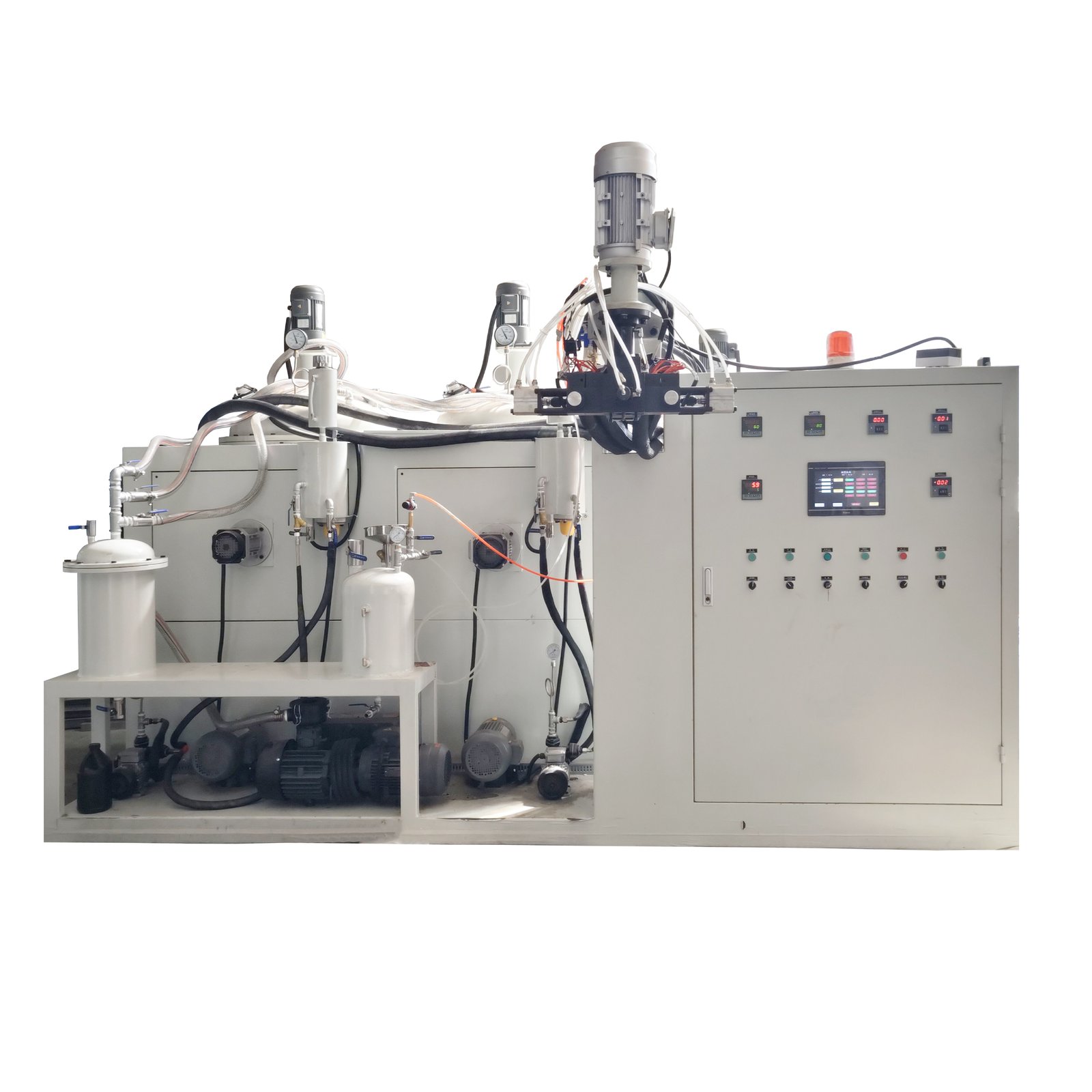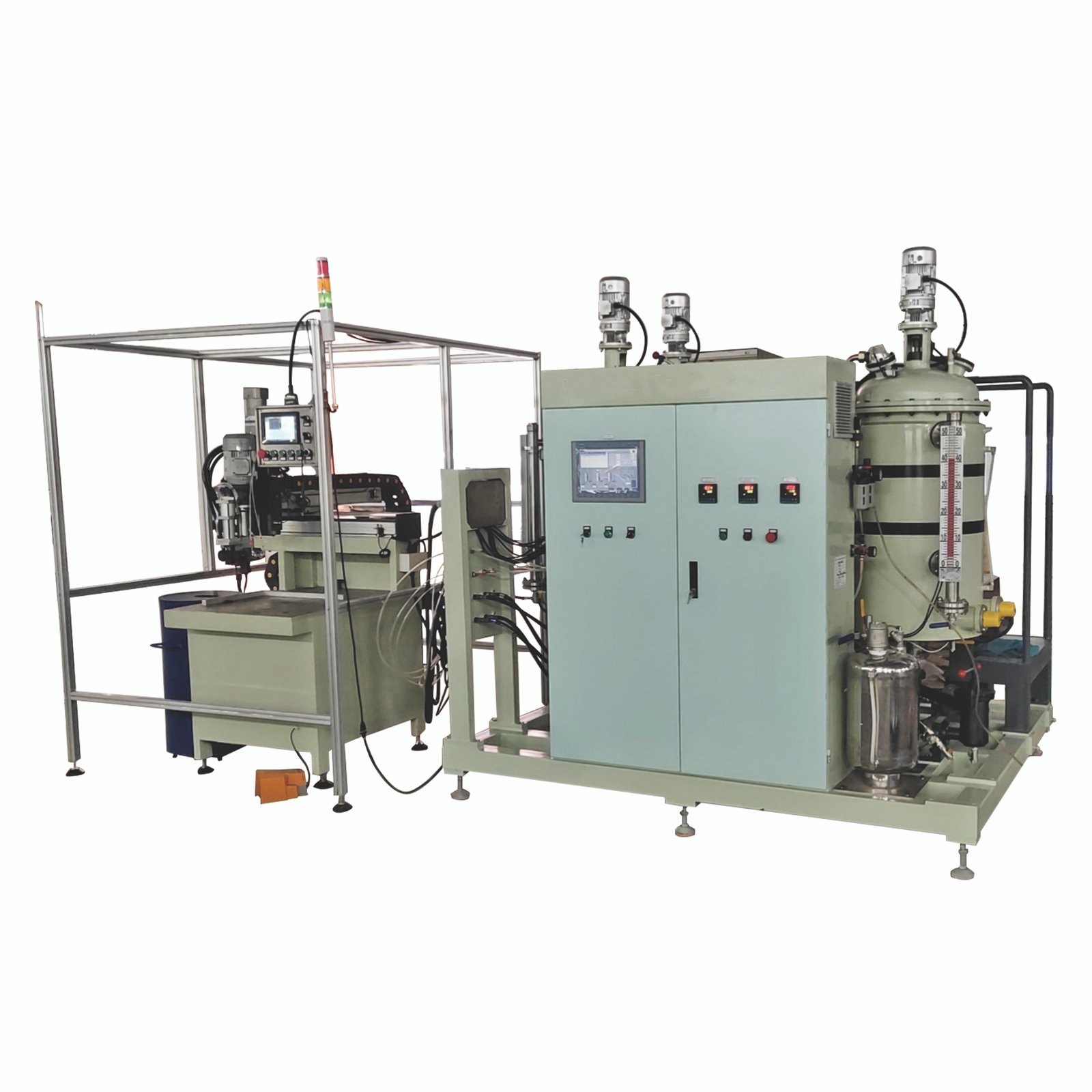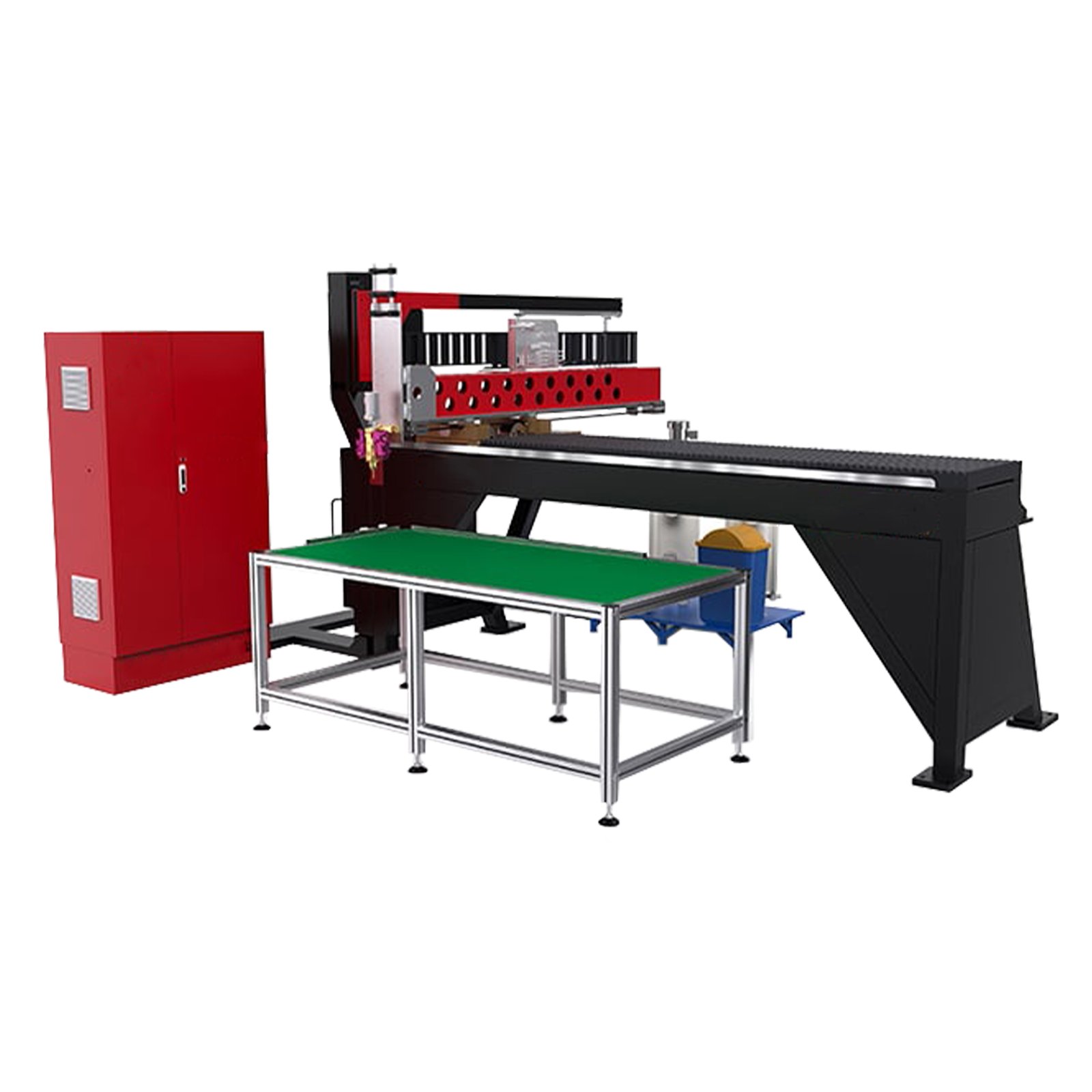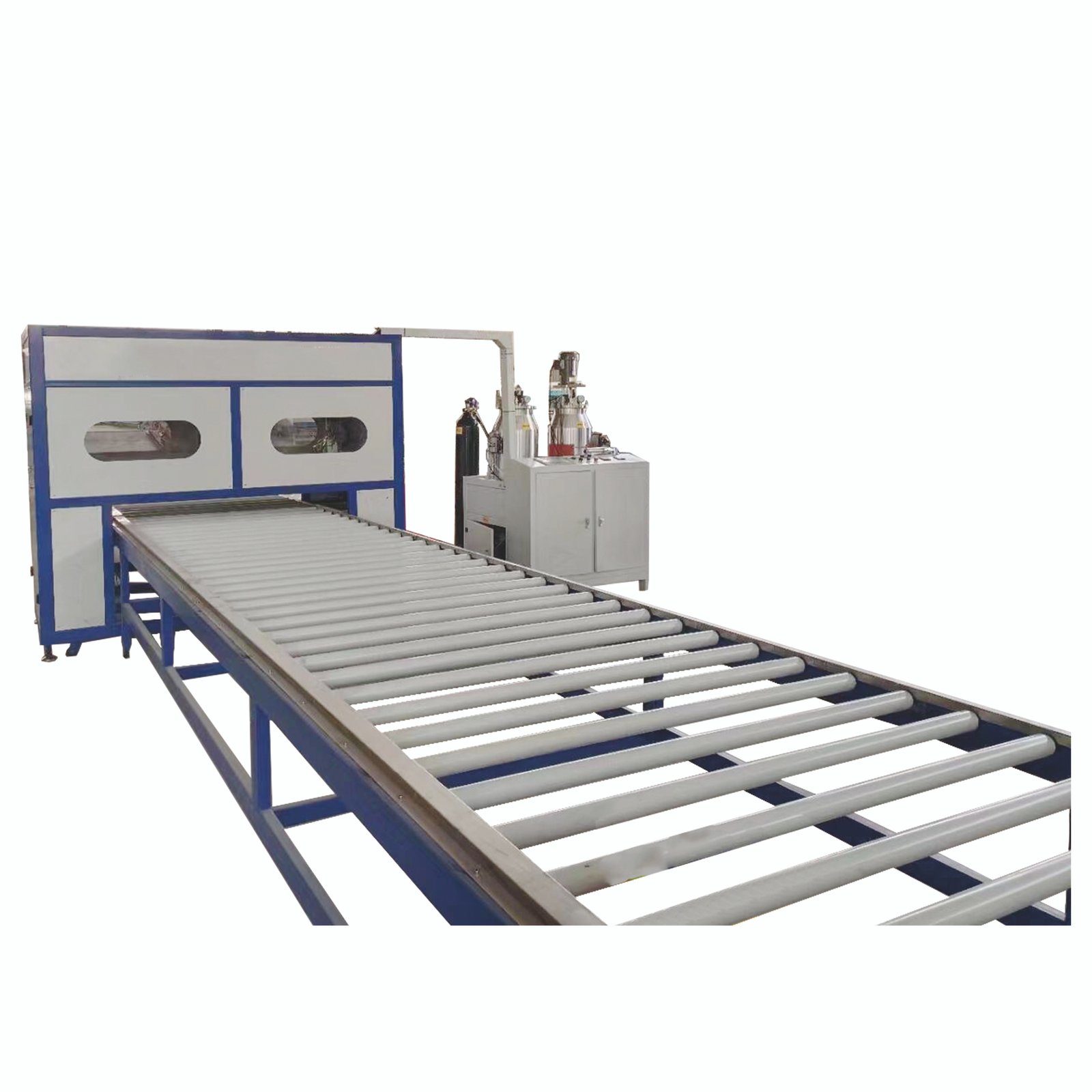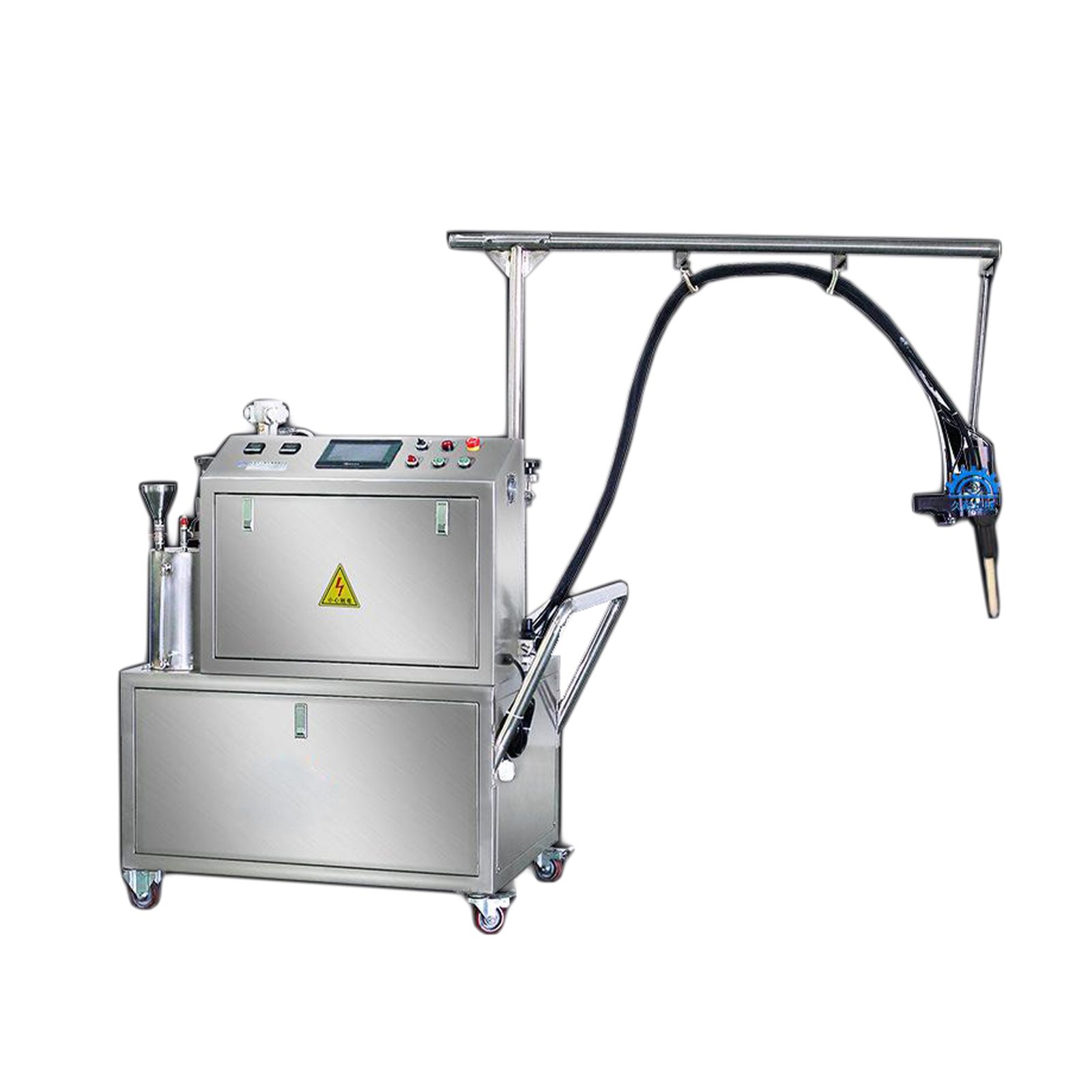Working Principles of Polyurethane Spray Machines
Polyurethane spray machines consist mainly of material pumps, a main unit, and spray guns. The working principle involves extracting raw materials from two separate storage tanks (A and B components) using two pumps. These materials are then mixed in a specific ratio by the main unit, followed by heating and pressurization. Finally, the mixture is sprayed onto the target surface through the spray gun. Inside the spray gun, the A and B components undergo a chemical reaction, quickly curing into a solid coating.
There are two main types of polyurethane spray machines based on their functions: spraying type and injection type. The spraying type is primarily used for large-scale insulation and waterproofing projects such as building facades and roofs, while the injection type is suited for smaller applications like insulating solar water heaters and storage tanks.
Applications of Polyurethane Spray Machines
1. Building Facade Insulation
Polyurethane spray technology is widely used in the construction industry, especially in exterior wall insulation, due to its excellent thermal insulation and moisture resistance.
Case Study: In a large residential project in Europe, 150,000 square meters of exterior walls were insulated with polyurethane spray. The use of polyurethane reduced heat loss by 25% annually and shortened the construction period by 30%, resulting in significant energy savings and increased comfort for residents.
2. Cold Chain Logistics Insulation
Polyurethane spray provides superior insulation for cold chain logistics, ensuring the stability of low-temperature environments.
Case Study: An international cold chain logistics company applied polyurethane spray inside its truck fleet. This improved the temperature fluctuation from ±2°C to ±0.5°C, extending the freshness of goods by 15% and reducing fuel costs by 12%.
3. Industrial Waterproofing and Anti-corrosion
Polyurethane spray is crucial for industrial waterproofing and anti-corrosion, particularly in pipelines, storage tanks, and basements.
Case Study: A chemical plant applied polyurethane spray to 5,000 square meters of storage tank surfaces, significantly improving corrosion resistance and extending the maintenance cycle from 4 years to 8 years, saving substantial maintenance costs.
4. Flooring Coatings
Polyurethane spray is widely used in industrial floors, warehouses, and shopping centers due to its strong wear resistance and durability.
Case Study: A large warehouse applied polyurethane spray to its 2,500 square meter floor. The coating increased compressive strength by 40% and protected the surface from wear caused by frequent heavy machinery use, extending the floor’s lifespan and reducing maintenance costs.
5. Fireproof and Thermal Insulation
Polyurethane spray can provide fireproof and thermal insulation, especially in high-temperature environments.
Case Study: A steel factory applied a 3-5 cm thick polyurethane spray to its high-temperature furnaces. The material improved both insulation and fire resistance, stabilizing the temperature inside the plant and enhancing energy savings.
6. Automotive Industry
Polyurethane spray is extensively used in the automotive industry for corrosion protection and enhancing soundproofing and comfort.
Case Study: An automobile manufacturer used polyurethane spray for corrosion protection on the chassis of their vehicles. The coating improved corrosion resistance, extended lifespan by 30%, and enhanced cabin noise insulation.
7. Furniture and Decoration Industry
Polyurethane spray is used for surface treatment and enhancing the aesthetics and durability of furniture and decor.
Case Study: A furniture manufacturer applied polyurethane spray to wood furniture surfaces, improving appearance, scratch resistance, and water resistance, significantly boosting product competitiveness.
8. Aerospace Industry
Polyurethane spray is also used in aerospace applications for corrosion protection and thermal insulation of aircraft.
Case Study: An aerospace company applied polyurethane spray to the fuselage of its planes, providing extra fire protection and reducing aircraft weight, thus improving fuel efficiency.
Industry Guidelines and Standards
When selecting polyurethane spray machines, key considerations include:
- Spray Area and Thickness:Choose a machine based on the project size and required layer thickness.
- Material Properties: Select appropriate machine parameters based on the viscosity, reaction time, and characteristics of the polyurethane materials used.
- Environmental Conditions:Consider temperature, humidity, and other environmental factors when selecting the equipment.
- Maintenance: Opt for machines that are easy to maintain and clean for long-term stable operation.
Industry standards for polyurethane spray machines include:
- Mixing Precision:Ensures accurate mixing of components to guarantee coating quality.
- Spray Pressure and Flow Rate: Adjust these according to project needs to ensure consistent coating and minimize waste.
- Temperature Control: Ensures materials react at optimal temperatures to maintain consistent quality.
- Environmental Compliance:Machines should meet local or national environmental standards for waste gas treatment and emission control.
Equipment Selection and Performance Optimization
Choosing the right polyurethane spray equipment is critical for improving production efficiency and reducing operational costs. Here are some key principles and optimization strategies:
- Production Needs Analysis: Assess project requirements such as spray area, layer thickness, and production speed before selecting equipment.
- Technological Optimization: Modern machines feature automated controls, optimized spray guns, pumps, and pressure regulation systems to enhance uniformity and reduce waste.
- Balancing Performance and Longevity:Consider the machine’s maintainability and ability to withstand environmental conditions (e.g., high temperatures or humidity) to extend its lifespan.
Industry Outlook and Development Trends
The polyurethane spray equipment market is expected to grow at a compound annual growth rate (CAGR) of 7.8% by 2028. Key trends include:
- Automation and Intelligence:Future machines will offer automated parameter adjustments, real-time monitoring of important indicators, and remote diagnostics, enhancing productivity.
- Environmental and Energy Efficiency:There will be an increased focus on reducing VOC emissions, improving energy efficiency, and complying with stricter environmental regulations.
- Customization: As market demand becomes more diverse, machines will offer more adjustable parameters, including spray volume, pressure, and temperature ranges to meet specific project requirements.
- Enhanced Performance and Multifunctionality:Future machines will integrate multiple functions, such as waterproofing, fireproofing, and soundproofing, into one device, boosting efficiency and satisfying complex needs across industries.
Polyurethane spray machines are essential tools across various industries, offering efficiency, environmental benefits, and wide application potential. As technology advances, the demand for advanced spray equipment will grow, and manufacturers must focus on selecting the right equipment and optimizing its performance to meet specific project needs. Regular maintenance is also key to ensuring long-term performance and product quality.




